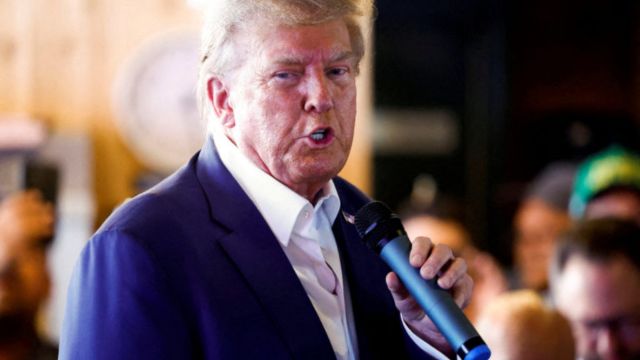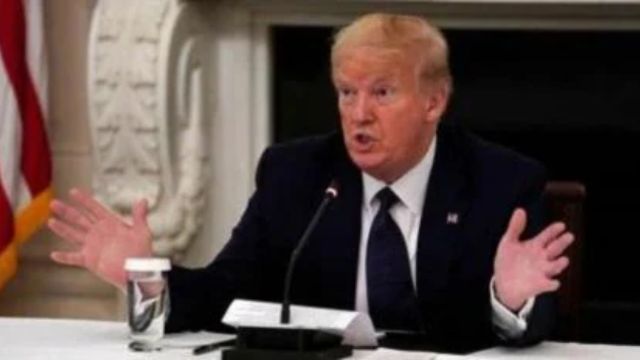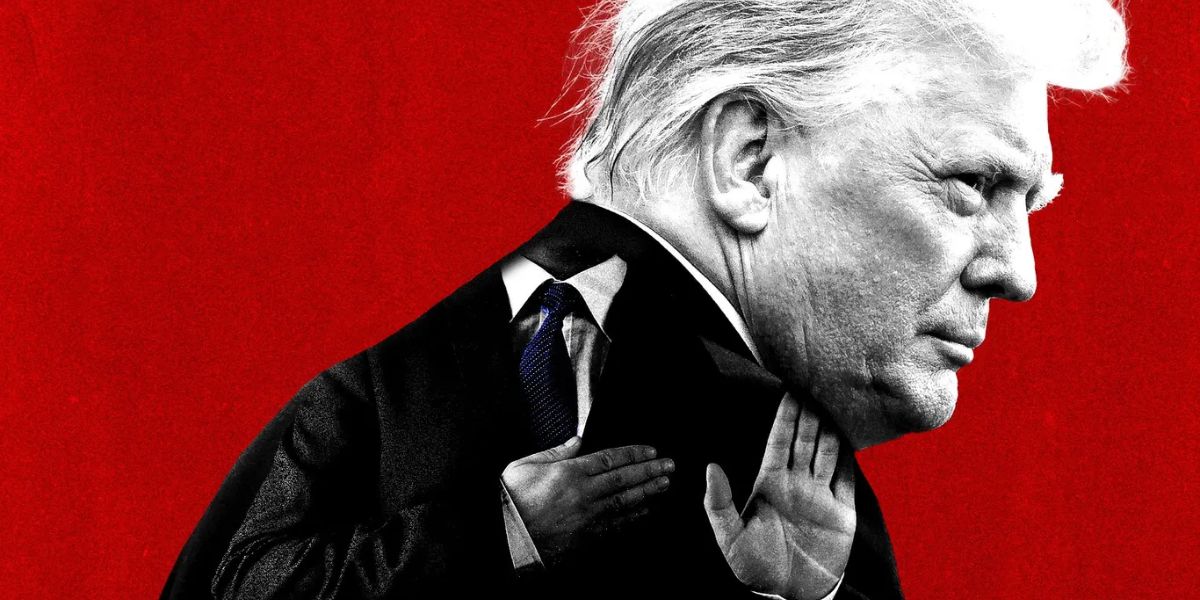Trump Faces Obstacles in Workforce Overhaul Due to Proposed Rule
Washington: To counter former President Donald Trump’s vows to drastically restructure the workforce along ideological lines if he retakes the White House in November, the government’s top human resources office published a new regulation on Thursday that makes it more difficult to fire thousands of federal employees.
Regulations from the Office of Personnel Management prohibit career civil servants from being categorized as political appointees or as other at-will employees, who are subject to more lenient termination policies. It is a reaction to Trump’s 2020 executive order known as “Schedule F,” which aimed to lessen the job security safeguards enjoyed by tens of thousands of the 2.2 million federal employees by allowing for their reclassification.
As soon as he assumed office, President Biden annulled Schedule F. However, if Trump were to bring it back during a second term, he would have the ability to significantly boost the current 4,000 government employees who are considered political appointees and usually rotate with every president.

It’s unclear how many workers Schedule F may have impacted. The National Treasury Employee Union, however, obtained documents through freedom of information requests that suggested federal employees, including office managers and cybersecurity and human resources specialists, might have been subject to reclassification. This suggests that the scope of Trump’s order may have been wider than previously thought.
By outlining the procedures for reclassifying federal employees and making it clear that employees’ civil service protections cannot be revoked, regardless of their job type, the new regulation may be able to thwart any potential Schedule F order. It also makes it plain that political appointees and noncareer civil officials are not eligible for the policymaking classifications, which are only applicable to the latter.
Read More: Trump Media Criticized as ‘Scam’ by Barry Diller, Caution Urged
“Now, it will be considerably more difficult for any president to arbitrarily fire the impartial experts who work for our federal agencies to create space for personally chosen party supporters,” said Doreen Greenwald, president of the National Treasury Employees Union, in a statement.
Experts at the political risk advisory firm Eurasia Group stated that the new regulation does not prevent a future Trump administration from redesignating government employees as Schedule F employees. However, a “Trump administration would need to go through an even more cumbersome regulatory process (and likely face court challenges) to redesignate employees as Schedule F rather than unilaterally doing so on Day 1,” according to a study.
Radically Disparate Interpretations of the new rule
Pro-government organizations, liberal research tanks, and campaigners have applauded the regulation. Since replacing current government employees with new, more conservative alternatives is a major component of the conservative Heritage Foundation’s roughly 1,000-page playbook known as “Project 2025,” they saw securing federal worker protections as a vital issue.

To eliminate what prominent Republicans have long criticized as the “deep state” of government bureaucracy, that proposal calls for screening, maybe terminating, and hiring conservative replacements for scores of federal employees.
Leading a coalition of around thirty advocacy organizations in support of the rule, Democracy Forward’s president and CEO, Skye Perryman, termed it “extraordinarily strong” and said it can effectively oppose the “highly resourced, anti-democratic groups” behind Project 2025.
“This is not a wonky issue, even though it may be billed that way at times,” said Perryman. “This is really foundational to how we can ensure that the government delivers for people and, for us, that’s what a democracy is about.”
The 237-page final rule is scheduled to go into force formally next month and is being published in the federal registry. After putting out the initial proposal for the modifications in November of last year, the Office of Personnel Management examined and addressed more than 4,000 public comments. Approximately two-thirds of the responses were in favor of the new rule, with opposition coming from officials at some prominent conservative organizations.
Should Trump win reelection, his team may order the Office of Personnel Management to create new regulations. Nevertheless, the procedure is laborious and necessitates a thorough justification of why the new rules are better; this could open the door for opponents to file a lawsuit.
According to Rob Shriver, deputy director of the Office of Personnel Management, “Schedule F sought to do” what the new regulation guarantees—that federal employee protections “cannot be erased by a technical, HR process.”
“This rule is about making sure the American public can continue to count on federal workers to apply their skills and expertise in carrying out their jobs, no matter their personal political beliefs,” Shriver told reporters during a telephone interview.
85% of federal employees, he said, are “our friends, neighbors, and family members,” committed to serving the American people, not political agendas, and are based outside of the Washington, D.C., area.










